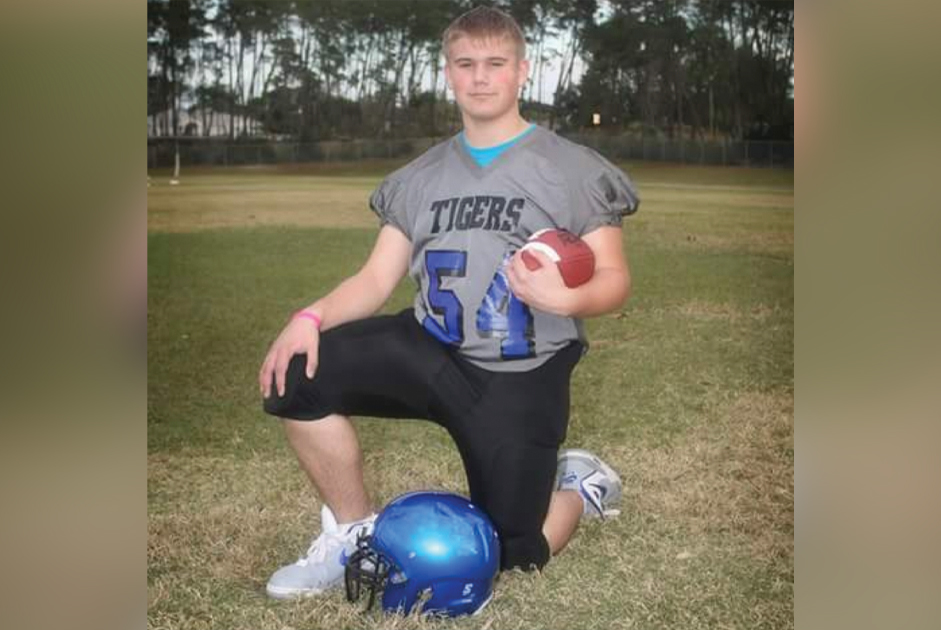Each month, this series will provide important facts and tips surrounding child safety in an effort to support parents and caregivers as they navigate reducing risks and creating the safest environment possible for the children in their lives.
In the wake of an unimaginable journey marked by loss and grief, Brooke Arnold’s profound love as a mother has transformed into an unwavering commitment to raise awareness among parents about heart health and the crucial significance of advocating for both their own well-being and that of their children, especially in terms of early detection and genetic testing. Every day is a poignant reminder of her beautiful son, compelling her to share his story and serve as a catalyst for change in how individuals and doctors perceive and prioritize often undiagnosed conditions like Brugada and other heart conditions.
Can you share with us your family’s personal journey with Brugada Syndrome?
Christmas 2015 was a beautiful day. Dylan had just turned 14, and I remember going for a walk together as he shared his excitement about playing the new PS4 games he got for Christmas. We held hands and continued talking about the car he wanted to get when he turned 16. He was all smiles and just so excited about all the good things coming up in his life. That night, we kissed him goodnight as he played online with friends and went to bed. The next morning, my husband woke up first and found Dylan passed away in his bedroom. That was the start of our nightmare.
None of us knew what happened, but thankfully, we had a wonderful medical examiner who felt it could be heart related because everything else looked perfectly healthy. Prior to his death, my son had complained about not feeling well for a few months and every doctor and hospital we had taken him to blamed it on a past concussion he had two years prior. There was never a mention of his heart and not a single doctor ever looked into it. We were told he would be fine and to just give it time. With the medical examiner’s suggestion, we sent Dylan’s samples out for genetic testing, as his heart looked good. We then found out my son had Brugada, a type of heart arrhythmia that could have been detected if he had an EKG.
After learning that Brugada is an autosomal dominant genetic disorder, meaning it can be inherited from just one parent, we did further testing and confirmed that I also have it. Brugada worsens with each generation, especially for males due to their chromosomes. All those years, I never knew I had the condition or that I had passed it to my son.
Through the unimaginable loss of Dylan and your own diagnosis, your desire to advocate for heart health awareness and make Brugada Syndrome more well known was shaped. What do you wish more people understood?
What most people may not know in general is that sudden cardiac arrest is the leading cause of death in the United States. In fact, it’s the leading cause of death of all ages on school campuses, and it is the leading cause of death in athletes. Brugada is just one of many electrical heart-related conditions. Over the last eight years, I’ve met many parents who have lost their children to other types of cardiac conditions. Many conditions do not show symptoms prior to SCA (sudden cardiac arrest) and, unfortunately, can only be detected by a simple EKG. Dylan happened to be one of the few that did show symptoms, but unfortunately, the medical professionals completely overlooked it and this continues to happen.
In light of your own and your son’s undiagnosed condition, how do you believe the medical field can improve its approach to detecting heart issues in children and adolescents?
Most children have some type of physical exam whether it’s required for a yearly medical physical or for sports. Rarely is an EKG provided to truly detect if there are any heart abnormalities. Through my own experience, if a child looks physically healthy, an EKG is not done. I strongly feel that all children should be given an EKG as part of a yearly physical.
You’ve shared that Dylan loved sports and, with youth sports playing such a significant role in many children’s lives, how can parents actively advocate and encourage the prioritization of heart health screenings?
Be proactive. Require and demand your child have an EKG because a stethoscope exam is not enough to detect an abnormality. Almost every day, I hear of a story of a child passing away (especially young athletes) to some type of heart-related condition. Most of these cases could have been prevented.
In Florida, sports physicals recommend an EKG but are not required. Recently, several counties here in Florida are now requiring mandatory EKGs to play sports, but it’s not the rule in every state or county yet. Whether your child plays sports or not, having a yearly EKG is the best way to be proactive in your child’s health. It’s a test that takes fewer than 10 minutes and could possibly save your child’s life. My son was 14 years old, almost six feet tall and looked like a healthy athletic preteen, but what couldn’t be seen was the underlying heart condition that ultimately took him from us.
Considering your firsthand experience, what advice would you give to parents who may be unaware of potential heart conditions in their children?
It’s scary, but most of the time there are no signs that your child has an electrical heart issue. With so many of these cases, they are genetically passed from one family member to the next, often without realization. In my experience, I didn’t know I had Brugada or that I had passed it down to my son. It is important to try to know your family history with heart-related issues and to have your family members screened at first with an EKG.
If a heart abnormality is found, the next step is to have your other children and immediate family members have a simple genetic blood test done to confirm if anyone else is a carrier. After we found out how Dylan passed and confirmed that I had it, we had my daughter tested immediately as well as my sister. Fortunately, neither one of them has the condition.
Have you observed any positive changes or initiatives within the medical field regarding early detection of heart conditions in young individuals?
With each story of yet another child passing away due to an undiagnosed heart condition, awareness is growing. There are countless parents who’ve lost children to SCA, who have launched organizations to raise awareness for heart screens, the importance of having AED nearby, how to use them and how to give CPR. In fact, in Florida, we now have a law that students are required to have CPR training in order to pass freshman and junior years of high school. While there are states starting to listen and make changes that prioritize pediatric heart health, there is still so much that needs to be done to protect our children.
A special thank you to Shawn Sima from Who We Play For {online article link: whoweplayfor.org} and Parent Heart Watch {online article link: parentheartwatch.org for providing additional information into Brugada Syndrome and other heart health-related insights for this article, as well as all they do to advocate for the health of our children.























